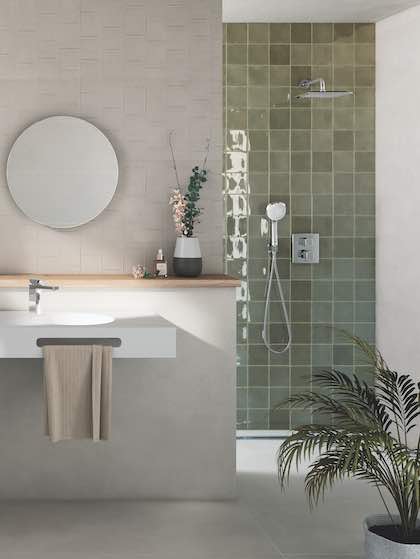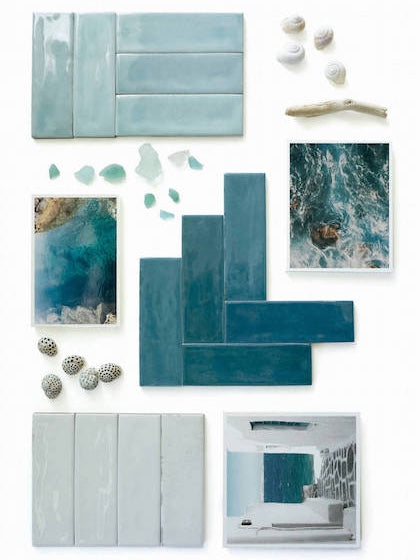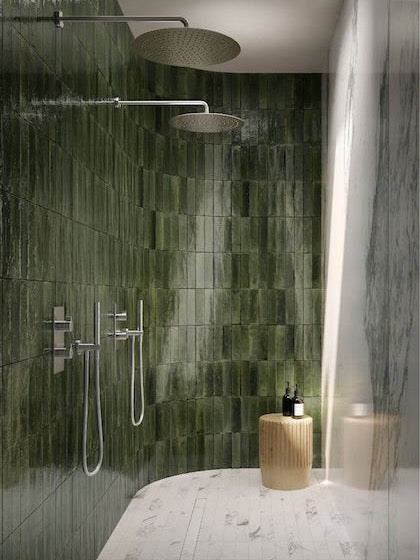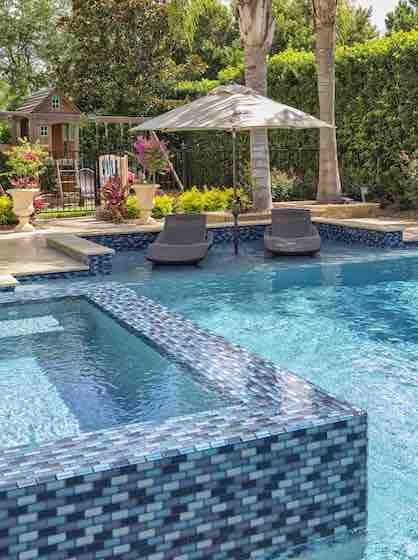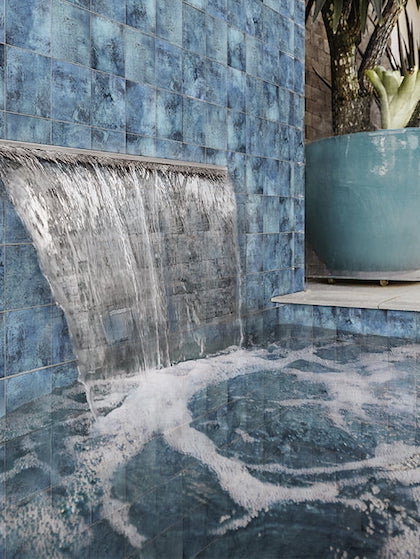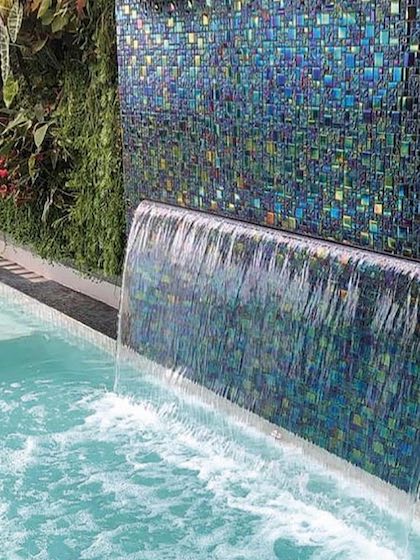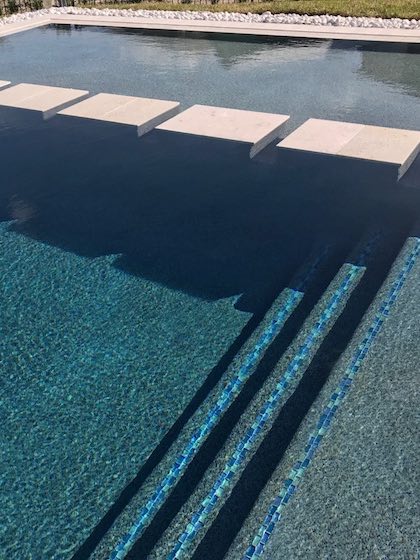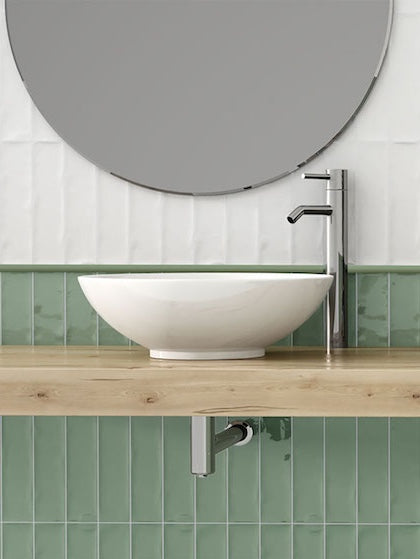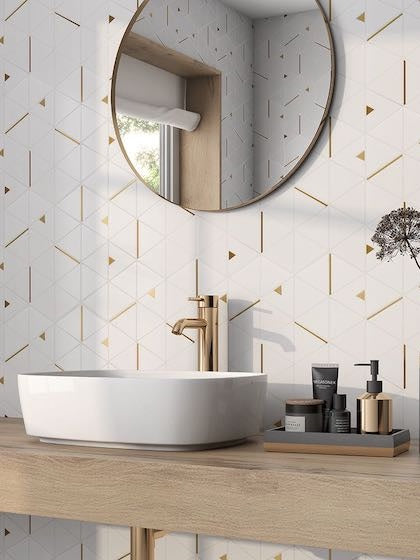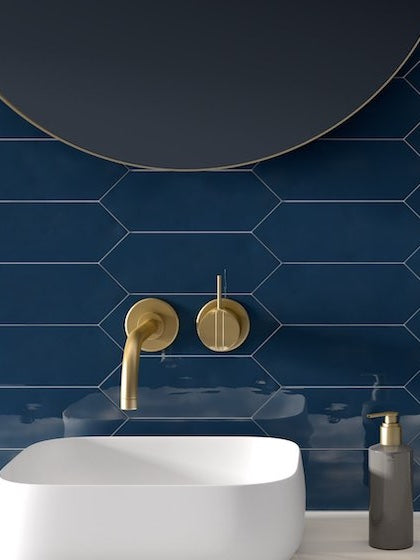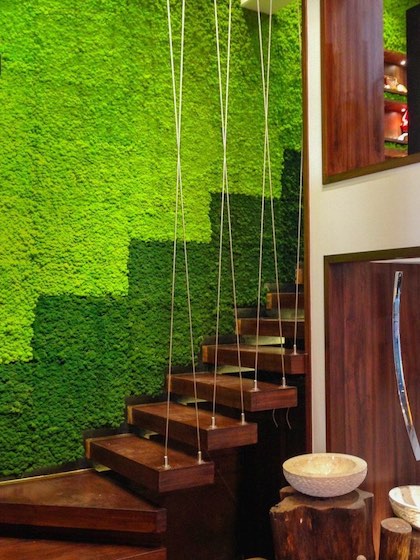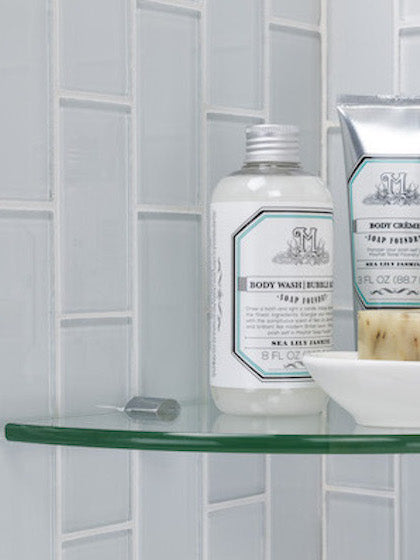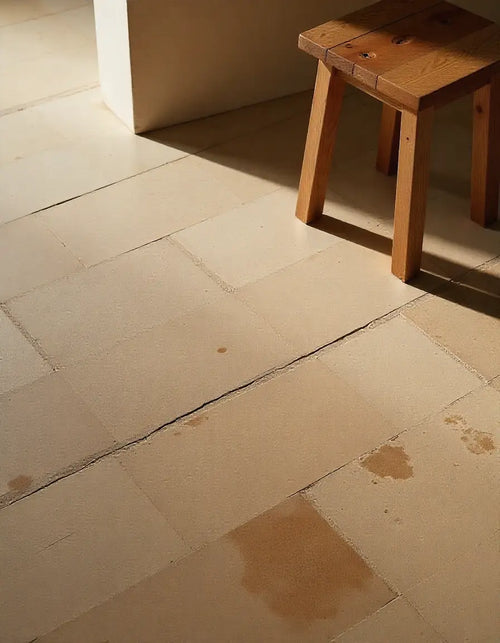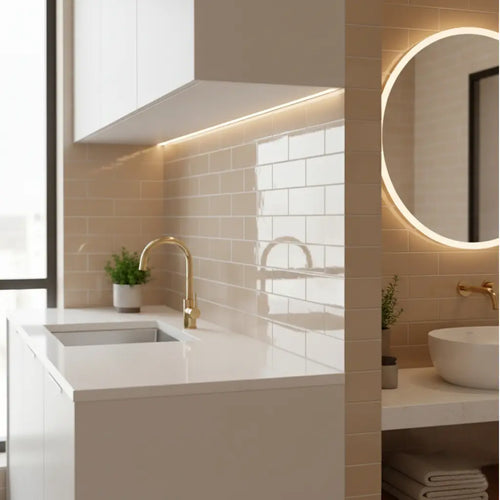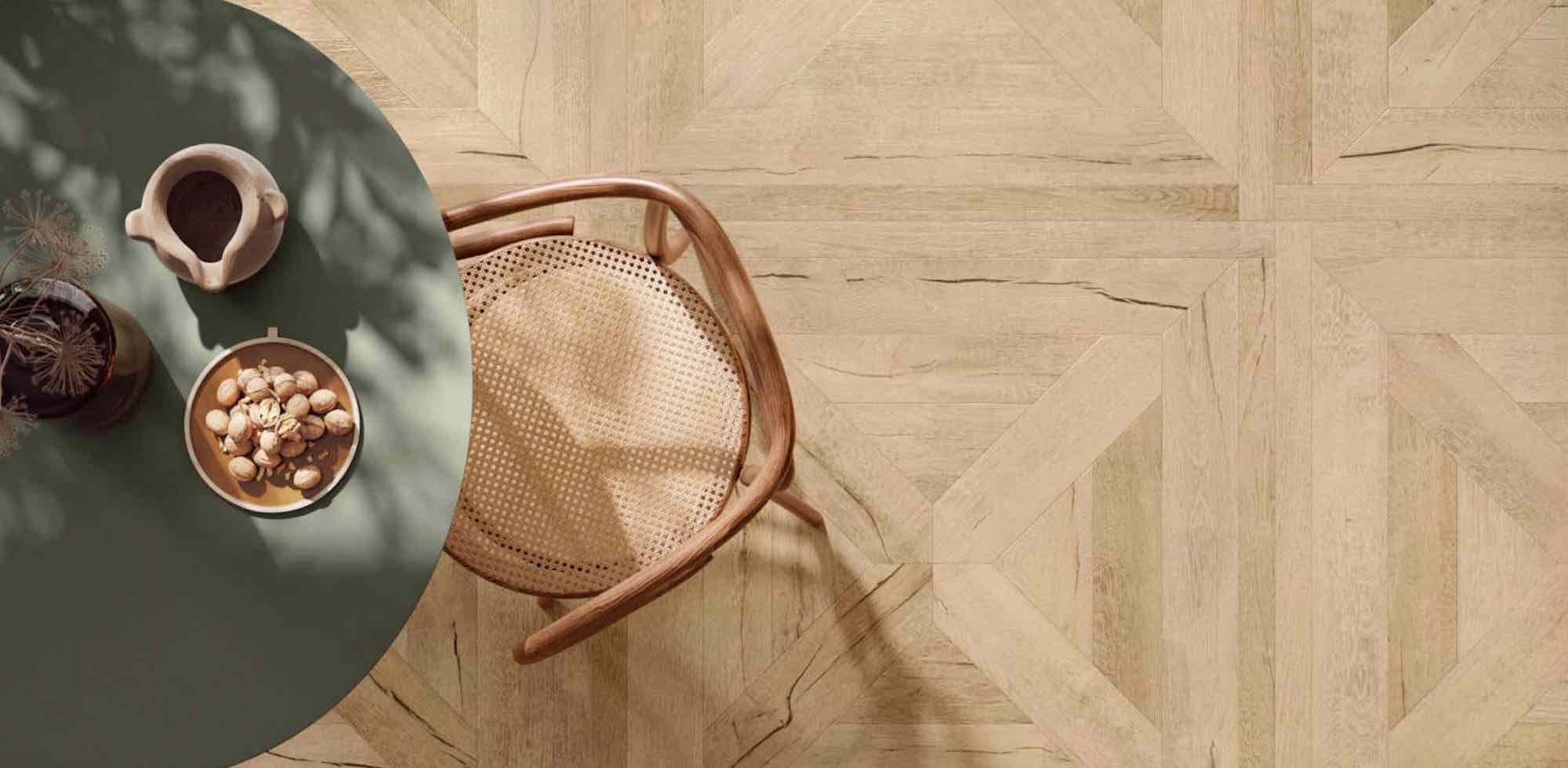Key Highlights
- Metal tiles are best suited for high-heat, performance-driven kitchens, offering premium heat resistance, hygienic wipe-friendly surfaces, and seamless pairing with stainless appliances.
- Glass tiles are ideal for bright, modern, or compact kitchens—non-porous, stain-resistant, highly light-reflective, and available in rich colors and patterns.
- Final frame of both metal and glass tiles offers style and durability; choose based on kitchen use and design goals.
What Are Metal Tiles? (Modern, Bold, Performance-Driven)

Metal tiles — including stainless steel, brushed aluminum, copper, and mixed-metal mosaics — bring an industrial-modern aesthetic. Their heat performance and sleek, uniform look make them a high-performance choice for high-activity kitchens.
Core Attributes
- Premium heat resistance
- Hygienic and wipe-friendly
- Strong architectural aesthetic
- Available in brushed, polished, embossed, matte & satin finishes
Explore Metal Tiles for Your Kitchen Backsplash
What Are Glass Tiles? (Bright, Reflective, Visually Expansive)

Glass tiles remain a design-forward favorite due to their luminous effect, deep color clarity, and ability to expand small spaces visually. From glossy subway glass to iridescent mosaics, they’re engineered to elevate any kitchen environment.
Core Attributes
- Non-porous and highly stain-resistant
- Light-reflective and space-enhancing
- Offered in bold colors, gradients, and patterns
- Works well for modern, contemporary, or coastal-inspired kitchens
Discover Glass Tiles for your Kitchen Backsplash
2. Side-by-Side Comparison Between Metal Tiles vs Glass Tiles
| Feature | Metal Tiles | Glass Tiles |
|---|---|---|
| Heat Resistance | Excellent — ideal for stove surrounds | Good, but risk of thermal stress |
| Maintenance | Easy wipe-down, fingerprints visible | Very easy — ultra wipe-friendly |
| Durability | Can dent if thin; scratch-prone | Chip risk if heavily impacted |
| Installation Complexity | Requires Pro Tools + metal cutting | Requires precision; adhesive visibility |
| Design Aesthetic | Industrial, modern, luxe | Bright, colorful, clean |
| Cost Range | Moderate to premium | Budget to premium based on finish |
3. Pros & Cons of Metal Tiles and Glass Tiles
Metal Tiles
Pros
- ✔ Bulletproof heat performance
- ✔ Sleek, chef-style aesthetic
- ✔ Low-maintenance, hygienic surfaces
- ✔ Iconic with stainless steel appliances
Cons
- ✖ Smudge visibility
- ✖ Dents are possible with a thin gauge
- ✖ Professional installation recommended
Browse Curated Metal Tile Ideas for Kitchens
Glass Tiles
Pros
- ✔ High-end color brilliance
- ✔ Water-, stain-, and mold-resistant
- ✔ Opens up visual space perfect for small kitchens
- ✔ Wide variety of shapes and patterns
Cons
- ✖ Potential chipping
- ✖ Requires experienced installation
- ✖ Grout lines are more visible in some finishes
4. Real-World Use Cases
Choose Metal Tiles If:
- You're designing a chef-style or industrial kitchen
- Your appliances are stainless steel
- You want a high-end, modern aesthetic
- You need resilience behind high-temperature zones
Choose Glass Tiles If:
- You want a bright, clean, and spacious look
- Your design leans modern, contemporary, or coastal
- Minimal maintenance is a priority
- You want a statement backsplash with color impact
5. Detailed Performance Breakdown
Aesthetic Impact
Metal → Delivers a premium, bold, modern vibe
Glass → Radiates clarity, depth, and polished elegance
Heat & Durability
Metal → Reigns supreme behind cooktops
Glass → More stylish but can stress-crack in extreme thermal shock
Cleaning & Maintenance
Metal → Simple; just requires smudge management
Glass → Effortless — non-porous and highly stain-resistant
Installation Factors
Metal → Demands precision cutting
Glass → Requires extra care since adhesive can show through
Cost Signals
Metal and glass pricing → Depends on finish, thickness, and mosaic pattern
Specialty glass mosaics → May cost more than standard brushed metal but vary by design intention
Final Recommendation
Choosing between metal and glass tiles comes down to the kitchen experience you want to create. Metal tiles deliver a bold, professional vibe with elevated heat resistance — perfect if your space leans modern-industrial or pairs with stainless appliances. Glass tiles, meanwhile, offer a bright, airy, and upscale aesthetic that reflects light and visually expands tighter layouts. They’re low-maintenance, color-flexible, and designed to stay pristine long-term. Both options perform exceptionally well; your final call depends on your design goals, daily cooking habits, and how you want the space to evolve.

